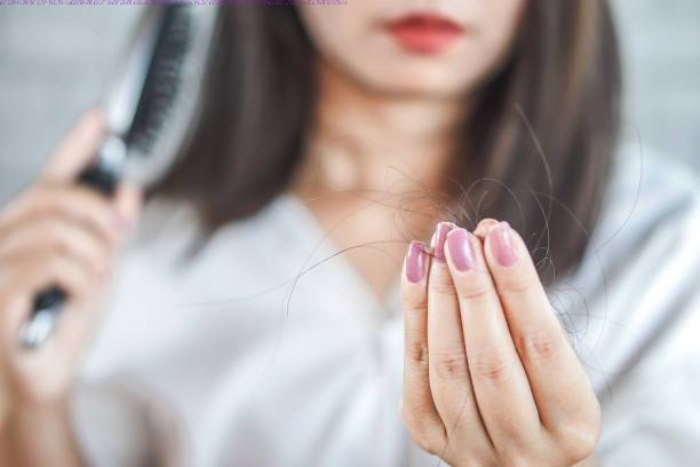A significant worry that impacts millions of individuals globally is hair loss. Although hair transplants are a well-known surgical treatment, there is rising interest in non-surgical pharmaceutical approaches to address this problem. You will study in-depth non-surgical treatments for adult baldness in this post. When used properly, these therapies can be beneficial and give hope to people who are experiencing hair loss.
Minoxidil: The Non-Surgical Solution Pioneer
One of the most popular non-surgical treatments for hair loss is topical minoxidil. It was found to have the unintended benefit of encouraging hair growth after it was first created as a high-blood pressure medication. Minoxidil stimulates hair follicles when applied topically to the scalp, increasing the development of new hair. It has demonstrated promising outcomes in both men and women and is accessible over the counter.
Finasteride: The Hormone Controlling Agent
Dihydrotestosterone (DHT) is the hormone that causes hair loss in genetically susceptible people. Finasteride is a medicine that suppresses DHT. By lowering DHT levels, finasteride can stop or even reverse hair loss. However, because finasteride may have adverse effects, it’s imperative to speak with a healthcare provider before using it. For those thinking about this treatment option, routine follow-ups with a medical professional can help ensure a safe and successful hair loss management plan by monitoring the progress and any negative responses. Finasteride is an appealing option for those looking for non-surgical treatments, as its mechanism of action offers essential insights into how it might address the underlying causes of hair loss.
Treatment with Platelet-Rich Plasma (PRP)
PRP therapy is a cutting-edge method of treating hair loss. It entails taking a little sample of the patient’s blood, isolating the platelets from it, and then injecting the scalp with platelet-rich plasma. PRP contains growth factors that activate hair follicles and promote hair growth. Numerous people have claimed successful outcomes, but additional study is still required.
Low-Powered Laser Treatment (LT)
Low-level laser treatment is a non-invasive procedure that stimulates hair follicles using low-level lasers or light-emitting diodes. According to theory, this method encourages hair density and improves blood flow to the scalp. LLLT devices are a practical alternative because they may be used in clinical settings or at home.
Shampoo With Ketoconazole: The Antifungal Method
Medicated shampoos frequently include ketoconazole, an antifungal drug. Although treating fungal infections of the scalp is its main application, some research indicates that it may also help with hair loss. It lessens inflammation and enhances the general health of the scalp, which may encourage hair growth.
Supplementing with Biotin: The Nutritious Increase
The B vitamin biotin is necessary for firm, healthy skin, hair, and nails. Even though biotin deficiency is uncommon, some people choose to enhance hair growth by taking biotin supplements. Keep in mind that different people may respond differently to biotin pills, so it’s essential to speak with a doctor or dermatologist before beginning any supplement program.
Additionally, adding foods high in biotin, such as whole grains, eggs, and nuts, to your diet can offer a natural way to get this essential vitamin. It may even support your attempts to maintain healthy hair overall. Eating a balanced diet is good for your general health and well-being in addition to your hair.
Topicals With Caffeine: A Reminder for Hair Follicles
Topical treatments containing caffeine have become more and more popular because they stimulate hair follicles and promote hair growth. These products improve scalp blood circulation, which may result in stronger, thicker hair. Although the data in favor of topicals containing caffeine is encouraging, individual outcomes may differ.
Natural Hair Loss Remedies using Essential Oils
Aromatherapy frequently employs essential oils, such as peppermint, lavender, and rosemary, which have drawn interest for their possible ability to stimulate hair growth. Usually applied diluted, these oils help to feed hair follicles and increase circulation on the scalp. Even while they might not be effective for everyone, some people have had success. Additionally, these essential oils’ calming and revitalizing aromas may add to a fun and calming hair care regimen, making the whole experience even more enjoyable. Furthermore, the all-encompassing approach of essential oils fits in with the expanding trend of natural, non-invasive hair care products, which makes them a well-liked option for people looking for alternatives to traditional treatments.
In summary:
Adults who are struggling with hair loss have hope thanks to non-surgical treatments. There are several methods, ranging from finasteride and minoxidil to novel therapies like PRP and LLLT. Other options for treating hair loss include essential oils, topicals with caffeine, biotin supplements, and shampoos with ketoconazole.
Keep in mind that each individual may respond differently to these treatments, so it’s essential to speak with a dermatologist or physician to find the best course of action for your unique situation. You can fight hair loss and recover confidence in your looks with non-surgical methods.
Also read:- WHAT IS THE POINT OF THE BLAND DIET?
